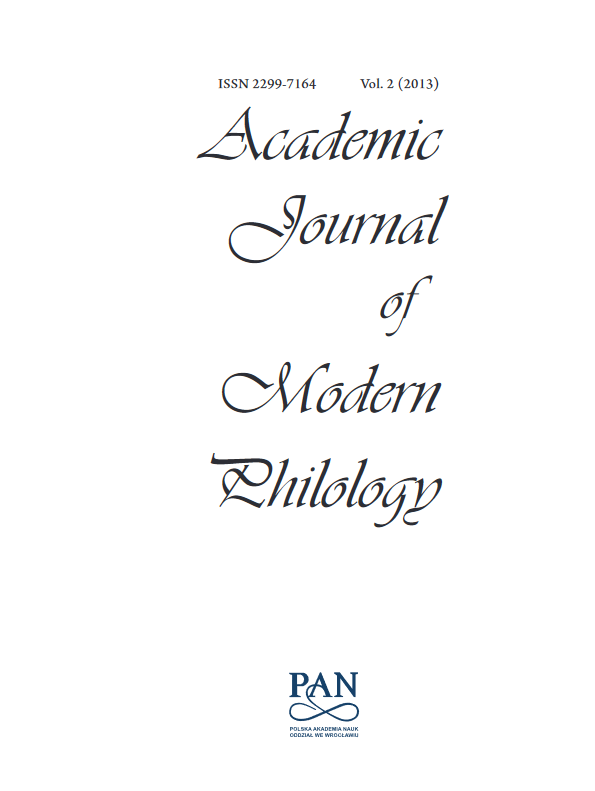„Die Furcht ist auch hier wieder die Mutt er der Moral“ Sprichwörtliche Aphorismen in Friedrich Nietzsches Jenseits von Gut und Böse
“Here Fear is Again the Mother of Morality” Proverbial Expressions in Friedrich Nietzsche’s Beyond Good and Evil
Author(s): Wolfgang MiederSubject(s): Language studies, Language and Literature Studies, Theoretical Linguistics, Phraseology
Published by: Komisja Nauk Filologicznych Oddziału Polskiej Akademii Nauk we Wrocławiu
Keywords: Friedrich Nietzsche; Jenseits von Gut und Böse; German proverbs; anti-proverbs; proverbial expressions
Summary/Abstract: The highly expressive and metaphorical language of Friedrich Nietzsche’s philosophical and literary works has been studied in numerous books and articles, but it is surprising that hardly anything has been said about his obvious inclination to use proverbs and proverbial expressions throughout his voluminous writings. Nietzsche himself was very well aware of his phraseological style that includes proverbs, proverbial expressions, proverbial comparisons, twin formulas, and also literary quotations. His well-known book Jenseits von Gut und Böse (1886, Beyond Good and Evil) is definitely no exception when it comes to the phraseological language of its aphorisms, fragments, and other short prose texts. When Nietzsche cites proverbs, he almost always varies them in such a way that his newly created anti-proverbs reflect his search for a new value system different from traditional moral codes. He clearly delights in creating blasphemous anti-proverbs from well-known Biblical proverbs. But he does the same with traditional folk proverbs, arguing that they too contain antiquated moral values. Some of these parodied, manipulated or alienated proverbs are also informed by Nietzsche’s dislike for moral didacticism, his own anti-feminism, and his desire to shock his readers into escaping from narrowly understood wisdom. Of course, Nietzsche uses also numerous proverbial phrases and idioms in order to add rhetorical strength to his arguments, relying heavily on employing such phraseological units as innovatively and at times shockingly as possible. Many contextualized examples will illustrate these points, showing that Nietzsche was indeed a masterful craftsman of employing proverbial language.
Journal: Academic Journal of Modern Philology
- Issue Year: 2013
- Issue No: 2
- Page Range: 75-89
- Page Count: 15
- Language: German

